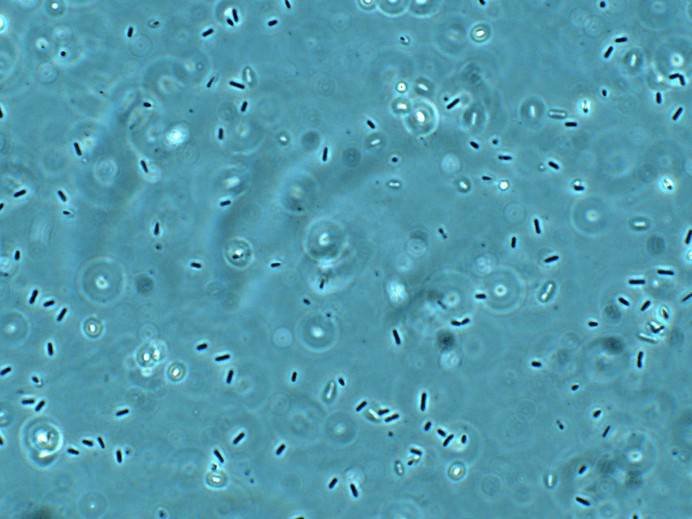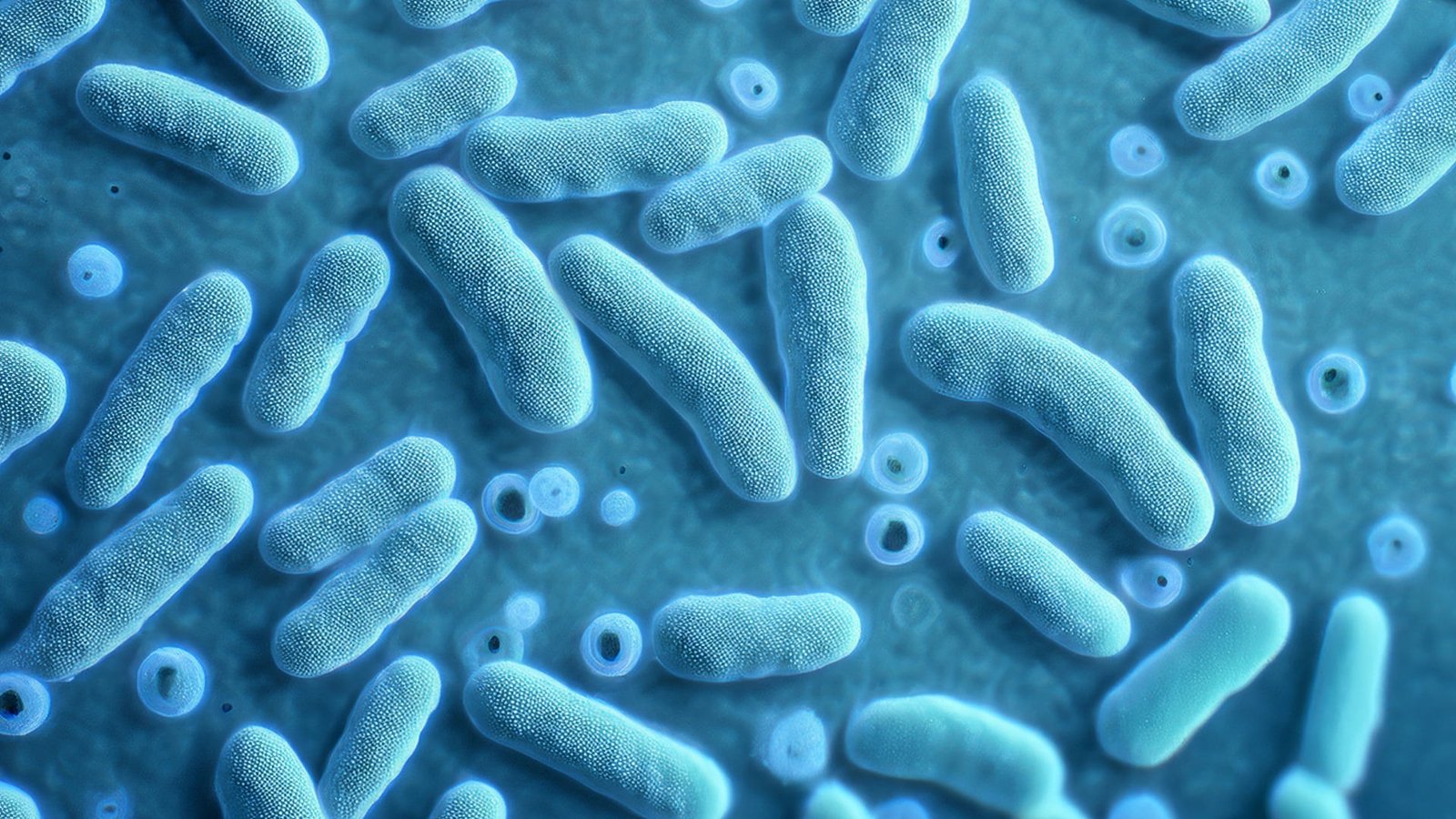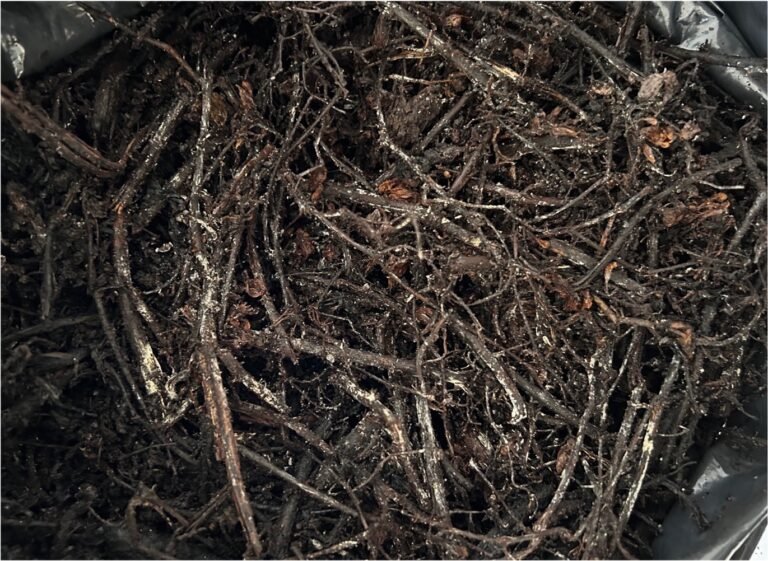In modern farming, not all heroes are visible. Bacillus pumilus is a microscopic ally with a big impact. This beneficial bacterium lives in the soil and works quietly to support healthy crop growth.
What if one natural bacterium could boost your yields, protect your crops,
and cut your fertiliser bill – all at once?
Meet Bacillus pumilus, the microscopic powerhouse helping farmers grow healthier plants with fewer chemicals.
Farmers use B. pumilus to boost plant development, improve nutrient uptake, and reduce the need for chemicals. It produces natural growth hormones and antifungal compounds, helping crops grow stronger and resist disease.
Importantly, it also supports soil health. When applied correctly, B. pumilus helps roots grow deeper, increases chlorophyll levels, and even enhances resistance to stress like drought or poor soils.
For farmers looking to grow more with less, Bacillus pumilus is a simple, sustainable solution. In this post, we’ll explore how it works, and why it’s earning a place in smart farming systems around the world.
Key Facts
Root Booster: Encourages longer, denser roots, improving nutrient and water uptake.
Biocontrol Shield: Produces antifungal compounds that fight common soil pathogens.
Stress Fighter: Helps crops tolerate salt, drought, and heavy metals.
Growth Promoter: Produces natural auxins (like IAA) that trigger stronger, greener growth.
Safe & Sustainable: Non-toxic and approved for biofertiliser and biopesticide use.
Yield Enhancer: Increases biomass and productivity in crops like wheat, rice, tomato, and maize.
Compatible with Fertilisers: Works alongside nitrogen inputs to maximise efficiency.
Backed by Research: Supported by peer-reviewed studies in Frontiers in Microbiology, PubMed, Springer, and ACS Agricultural Science & Technology.
1. Boosts Plant Growth Naturally
One of the biggest reasons farmers are turning to Bacillus pumilus is its ability to help crops grow stronger, without relying on synthetic fertilisers.
Here’s how it works:
- Root development: Bacillus pumilus produces auxins like indole-3-acetic acid (IAA). These plant hormones stimulate root elongation and branching, helping plants access more water and nutrients.
- Nutrient uptake: It increases the surface area of roots and improves the plant’s ability to absorb nitrogen, phosphorus, and other key nutrients. When used with fertilisers, it enhances their efficiency, so you can often apply less and still get great results.
- Chlorophyll content: Some studies show B. pumilus can increase chlorophyll levels. That means greener, more photosynthetically active plants and faster growth.
Because of these effects, farmers who use Bacillus pumilus often see larger plants, healthier leaves, and better early-season vigour.
👉 In short, it helps your crops reach their full potential, starting from the roots up.
2. Powerful Biocontrol Properties
In addition to promoting growth, Bacillus pumilus plays a crucial role in protecting crops from disease. This is especially important in arable systems where soil-borne pathogens can lead to serious yield losses.
So, how does it help?
- Antifungal activity: B. pumilus produces a range of natural antifungal compounds, including iturins, surfactins, and lipopeptides. These disrupt fungal cell walls and stop pathogens from spreading.
- Enzyme production: It also generates enzymes like chitinases and glucanases that break down the cell walls of harmful fungi such as Fusarium, Rhizoctonia, and Alternaria.
- Induced systemic resistance (ISR): Even more impressively, B. pumilus can “prime” plants by triggering their natural defence systems. This means your crops are better prepared to resist infections, even before pathogens strike.
What does this mean in the field?
Thanks to its biocontrol effects, farmers using B. pumilus report fewer disease outbreaks, stronger crops, and less reliance on chemical pesticides. This not only protects your yield, it also saves money and supports sustainable farming practices.
➡️ When paired with a good soil management plan, Bacillus pumilus becomes a powerful ally against crop diseases.
3. Supports Stress Tolerance and Soil Health
Farming today isn’t easy. Drought, salinity, compacted soils, and nutrient limitations are just a few challenges growers face. Fortunately, Bacillus pumilus can help plants cope with these stresses, naturally.
Builds resilience from the root up
- Improves root structure: B. pumilus encourages deeper, more extensive root systems. As a result, plants access water and nutrients more efficiently, even in poor or dry soils.
- Enhances salinity tolerance: Salty soils can reduce growth and yield. But certain strains of B. pumilus help plants manage salt stress by boosting antioxidant activity and regulating osmotic balance.
- Boosts nutrient uptake: By producing organic acids and enzymes, B. pumilus helps unlock nutrients, especially nitrogen and phosphorus, making them easier for crops to absorb.
It’s also good for the soil
Healthy soil is the foundation of any productive field. Bacillus pumilus improves soil structure by increasing microbial diversity and organic matter turnover. In turn, this creates better conditions for root growth and long-term fertility.
➡️ The result? Crops that thrive in tough conditions and soils that keep giving year after year.

4. Field-Proven Benefits of Bacillus pumilus
Scientific research and field applications have consistently highlighted Bacillus pumilus as a valuable ally in modern agriculture. Here’s how this microbe has made a real-world impact:
1. Enhanced Crop Yields
Numerous greenhouse and field studies show that B. pumilus can significantly increase crop yields. In wheat, maize, and vegetables, treated plants exhibited higher biomass and more robust growth compared to untreated controls—particularly under nutrient-limited or saline conditions.
- A study in Frontiers in Microbiology found that inoculation with B. pumilus boosted tomato yield and photosynthetic rate while also increasing nutrient content (Zhao et al., 2022).
2. Root and Shoot Development
This bacterium promotes vigorous root systems and shoot elongation, improving both water and nutrient uptake. For instance, B. pumilus strain TUAT-1 has been shown to enhance root surface area and increase chlorophyll content in lettuce and rice, leading to stronger, more resilient plants.
3. Salinity and Drought Stress Resistance
Field research confirms B. pumilus can help crops cope with salt stress and limited water availability. It does this by triggering antioxidant enzyme production and reducing oxidative damage in plant tissues—essential mechanisms for stress adaptation (PubMed: 36620067).
4. Improved Nutrient Uptake
Through the production of enzymes and organic acids, B. pumilus makes soil nutrients, especially phosphorus and nitrogen, more available to plants. This reduces dependence on synthetic fertilisers while maintaining crop productivity (ScienceDirect, 2020).
5. Soil Microbiome Support
Application of B. pumilus has also been linked to improved soil microbial diversity and function. This not only boosts plant health but also supports long-term soil fertility and resilience.
5. Safety and Reliability for Farmers
When introducing any microbial product into the field, safety is always a concern. Thankfully, Bacillus pumilus has a strong reputation for reliability and safety, both for your crops and for the environment.
Proven Safety Profile
Most agricultural strains of B. pumilus are non-pathogenic and non-toxic. While a few rare strains have been associated with opportunistic infections in humans, these cases are isolated and strain-specific. Products approved for farming use are rigorously tested to ensure they’re safe for plants, animals, and humans alike.
According to multiple studies, including those published in PubMed and Frontiers in Microbiology, no toxic effects were observed in crop trials using certified B. pumilus strains.
Environmentally Friendly
Unlike many synthetic fertilisers or chemical pesticides, B. pumilus is biodegradable and leaves no harmful residues in the soil or water. It integrates naturally into the existing microbial community and supports soil biodiversity.
Regulatory Approvals
Many B. pumilus-based formulations have received regulatory approval in the EU and globally as biopesticides or biofertilisers. These approvals underline its proven record in both performance and environmental compliance.
Strain Matters
As with all beneficial microbes, not all strains are created equal. It’s essential to use only well-characterised, documented strains, like those used in BactoTech’s products. These strains are specifically selected for their safety, efficacy, and consistency.
In Summary: Why Bacillus pumilus Belongs on Your Farm
Bacillus pumilus is more than just another soil microbe. It’s a powerful partner for healthy crops and sustainable farming. From boosting root growth and nutrient uptake to fighting off fungal pathogens, this resilient bacterium supports your crops at every stage of their development.
Because it promotes plant health without harming the environment, B. pumilus gives you results you can rely on, without the long-term damage caused by chemicals. Its ability to thrive under tough conditions also means it’s a smart solution for farmers dealing with poor soils, salinity, or drought stress.
✅ Key benefits at a glance:
- Encourages stronger root systems
- Increases yield and biomass
- Suppresses soil-borne pathogens naturally
- Enhances tolerance to environmental stress
- Safe, natural, and easy to apply
Ready to See the Difference?
If you’re looking to cut back on chemicals while improving plant health and yield, Bacillus pumilus is a natural step forward. All BactoTech products that contain this microbe are made with strain-specific, field-tested bacteria, formulated for real-world conditions and real farmer results.
👉 Try our range of Bacillus-based products today and see how nature can work for you.
Have questions? Want to see trial results? Reach out to us directly or visit bactotech.co.uk for more information and product support.







